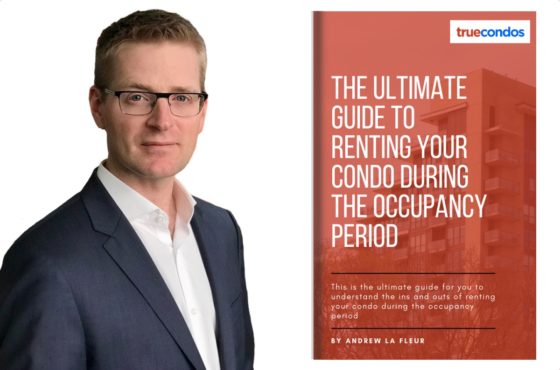The Elephant in the Room: HST
NOTE: the following blog post is not to be considered legal or tax advice. I am not a lawyer or an accountant. I’m writing this strictly for informational purposes only. Always consult a lawyer when purchasing pre-construction real estate.
ANOTHER NOTE: If you find this article confusing, good. That’s the number one point I’m trying to make: the HST on new condos is very confusing and it needs to be fixed.
This is a subject that very few people in the pre-construction condo industry are talking about, but one that could actually have major repercussions on our industry over the next few years. HST and how it affects new condo purchasers, specifically those purchasers who are investors (i.e. up to 80% of the market right now), is a terribly unclear issue. When the Mcguinty government introduced the HST in July 2010, it was said that it would not really affect the real estate market. While this may be true in an overall sense, for investors of new condos, there can be serious implications to your bottom line.
The issue is essentially this: there is an HST rebate built into the price of every new condo sold in Toronto. The assumption is that the buyer of any given new condo is an end-user (they are buying it for themselves to use, not to flip for profit, or to rent out to a tenant), therefore they qualify for this rebate which the builder collects on their behalf. In reality we know that the pre-construction condo market is dominated right now by investor-buyers NOT end-user buyers. Investors do not qualify for this rebate, so the builders must charge them to account for this rebate, effectively increasing the price of their units significantly at final closing. Now, there is a process in place whereby investors can apply to get this extra money back from the government after the fact, but as you can imagine any application process involving extracting money from the government is long, painful, and tedious.
The key questions that are so difficult to get concrete answers on are:
- Who qualifies for the HST rebate in the first place?
- How much is the HST rebate? How is it calculated? How much do I have to pay extra if I am an investor?
- How do I apply to get my money back if I am an investor? When can I apply? What conditions must I meet? When will I get my money back? Do I get all my money back or only a portion of it?
If you talk to 3 different real estate lawyers, I gaurantee you will get 3 different answers as to how the HST rebate works and how it affects investors. This is a serious issue as thousands of investors are buying condos in Toronto every month, and I think many will get a shock in 2-4 years when they meet their lawyers for final closing and they are asked to write a cheque for thousands of dollars to cover the HST.
Why are there seemingly no clear answers on how the HST works for investors? Part of it can be explained by the fact that the HST has only been in effect for a year, and very few (if any) NEWLY purchased condos have actually completed and closed in the last year. In other words, very few lawyers have actually completed a final closing for a client who purchased a new condo during the HST era which began July 1, 2010.
Toronto real estate lawyer Stephen Shubb has done his best to explain how the HST works (and I think he did a pretty good job) on his website:HomeLegalCost.com. Essentially his explanation boils down to this: if the purchase price is less than $450K, you will get the full rebate back after the fact as long as you rent it out for at least 1 year after final closing. So you will be in the same position as the end-user is, but you have to pay up front and wait to get your money back. If your purchase price is over $450K (which many units are of course in Toronto), buyer beware! You may have significant additional costs at final closing that you might not be getting back.
Call me crazy, but I actually believe that someone up there at Queen’s Park might be reading this blog (especially with an election coming). With that in mind, I am calling on the Ontario government to do the following:
- Come up with a clear statement and communication to the public about how the HST will affect buyers of new condominiums in Ontario.
- Come up with a clear statement and explanation for the real estate law industry (lawyers) so they can explain it to their clients
- Increase the limits on who qualifies for the full HST rebate. $450K is a ridiculous upper limit in a city where the average single family home costs about double that
- Get rid of the application process for getting back the HST rebate for investors. If the rebate is in fact the same as for end users, why complicate the entire process, create unnecessary bureaucracy at a great cost to the public, just to get the same result in the end?
Questions or comments? Totally confused? Please contact me.



